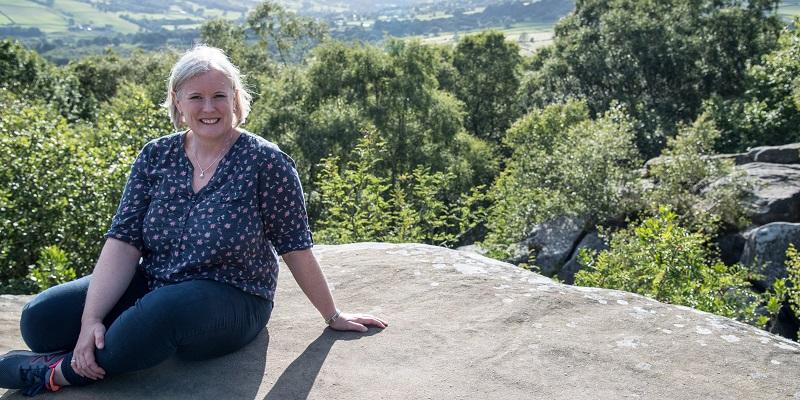
A Leeds academic has received a top award from the Royal Academy of Engineering for work which has had "widespread and significant impact" in tackling the spread of coronavirus.
The academy's citation honours Professor Cath Noakes' "...role in advising the NHS and Government at the highest level during the pandemic, shaping life-saving guidance based on her expertise in environmental and engineering controls".
"Under her leadership, the Environment and Modelling Group has had widespread and significant impact."
Professor Noakes is one of 19 individuals or teams named today as recipients of the President of the Academy's Special Awards for Pandemic Service.
The Academy says the awards are a recognition of "...exceptional engineering achievements in tackling COVID-19". Each individual and team honoured will receive a specially-minted silver medal."
Professor Noakes, based in the School of Civil Engineering, is a leading expert on the way pathogens spread inside buildings and, as a member of the Government's advisory group SAGE, has played a critical role in advising Ministers and senior civil servants about how to reopen society following lockdown.
She also convenes SAGE's Environment and Modelling Group.
Sir Patrick Vallance, the UK Government's Chief Scientific Adviser, said: "Professor Cath Noakes is widely respected by her colleagues.
"Under her leadership, the Environment and Modelling Group has had widespread and significant impact, not just on the Government's response to COVID-19 - where it has informed policy across a range of departments - but also on public advice that is supporting the safe reopening of businesses and public services."
During the pandemic, her work has focused on trying to get a better understanding of the way the virus survives inside buildings and how to assess the risks of exposure - as well as suggesting mitigation strategies to keep people safe.
Ventilation in buildings can reduce risks
Professor Noakes has advocated that improved ventilation inside buildings, particularly where large numbers of people assemble - such as in hospitals, care homes or other public buildings - can be an effective way of reducing the risk of the virus spreading.
Professor Sir Jim McDonald FREng FRSE, President of the Royal Academy of Engineering, said: "The COVID-19 pandemic is the biggest public health crisis of our time and has presented society with multiple challenges.
"Engineering expertise and innovation has been central to the global fight to save lives and protect livelihoods."
In addition to her membership of SAGE, Professor Noakes has given evidence to MPs on the House of Commons Science and Technology Select Committee and supported the Chartered Institution of Building Services Engineers in producing new guidance on ventilation for COVID-19.
Professor Noakes is just one of two engineers who are members of SAGE.
University 'proud of her inspired contributions'
Sir Alan Langlands, Vice-Chancellor, said: "The coronavirus pandemic presents huge challenges for the scientific community, the NHS and society as a whole.
"The University is immensely proud of the inspired contributions made by Professor Noakes in recent months. Her work on airborne infections and the transport of airborne pathogens has been vital to the country's response to this cruel virus, and is widely respected in the international scientific community and by colleagues in the frontline of healthcare."
Professor Noakes graduated with a degree in Mathematical Engineering from the School of Mechanical Engineering before studying for a PhD, also at Leeds. Her research applies the principles of fluid dynamics, the analysis of air flows, to simulate pathogen spread in hospitals and other public buildings.
One of her current research projects - HECOIRA - is a partnership between industry and two NHS trusts to develop new ways of designing and monitoring healthcare environments to improve infection control - and also to make them more effective spaces for patient and staff wellbeing.
Professor Noakes said: "I am deeply honoured to receive the award from the Royal Academy of Engineering. It is a recognition of the vitally-important role that engineers play in tackling the big challenges facing humanity.
"The strength of engineering research and innovation comes through teamwork and collaboration - and my contribution to tackling the pandemic has resulted from working with many people across multiple disciplines."






